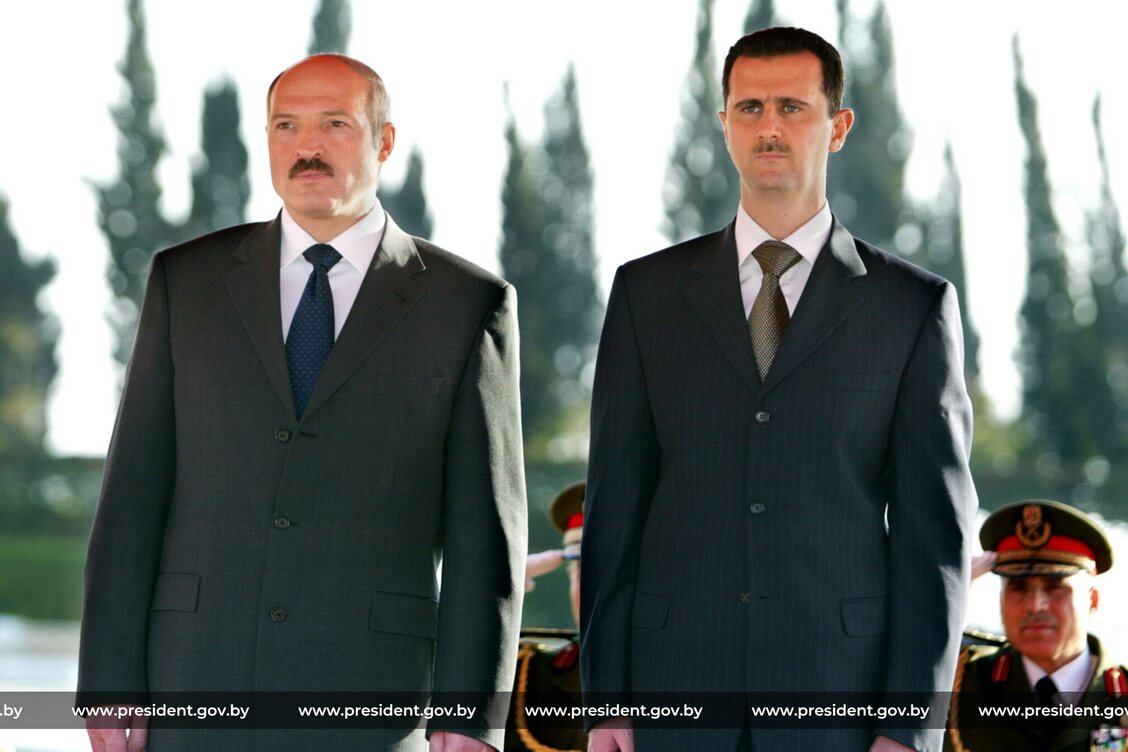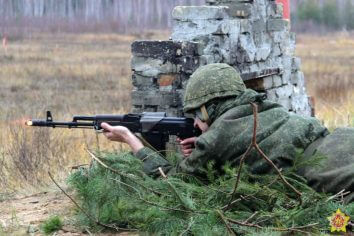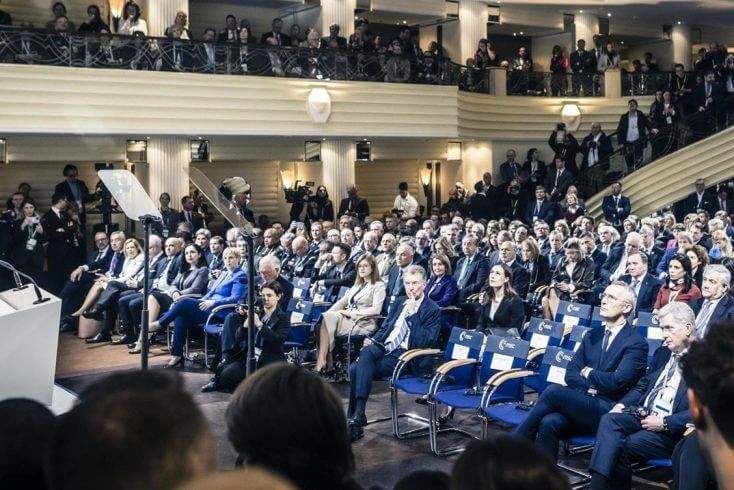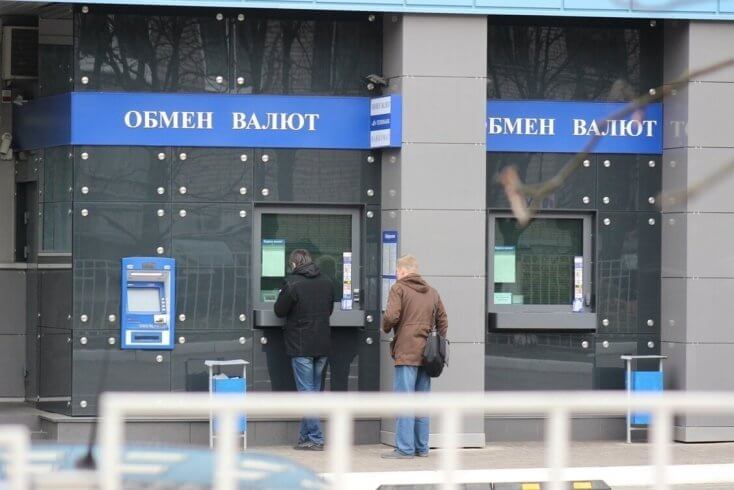Belarus’ opposition leaders have been inspired by the fall of Bashar al-Assad in Syria, while Alaksandar Łukašenka blamed the collapse on the West and drew parallels between unrest in Syria and the 2020 protests in Belarus.

Sympathy for fallen dictators
“God forbid, if we hadn’t held out in 2020, they’d all be here by now. NATO with the Americans behind them. They would nudge the Poles. The Poles have their interests—they seek to carve off western Belarus, just as they did in the past,” Łukašenka claimed during a visit to Barysaŭ on December 10.
He hopes that Moscow will defend him more resolutely than it did the Assad regime and has asked Russia to supply him with state-of-the-art missiles.
Łukašenka once again lamented the fall of authoritarian leaders such as Muammar al-Qaddafi, Saddam Hussein, Hafez al-Assad and his son Bashar al-Assad. The Belarusian ruler described Assad as a “doctor, not a dictator,” claiming that Assad has never killed anyone.
However, the Syrian Observatory for Human Rights reports that 30,000 people have died at the Sednaya prison near Damascus since the start of the civil war, where prisoners were tortured, raped and secretly executed.

Fear of the same fate
Łukašenka sympathizes with authoritarian leaders because he fears he may meet the same fate. His opponents certainly hope so, as evidenced by their statements on social media.
However, direct parallels between Syria and Belarus are far-fetched. Syria has been ravaged by civil war for over a decade, while the Belarusian regime remains firmly in control. A NATO invasion is, for now, merely a fantasy of Łukašenka and his entourage.
Moreover, the pro-democracy forces led by Sviatłana Cichanoŭskaja seek to steer the country toward European values. In contrast, Assad was overthrown by Islamist forces, including those with ties to al-Qaeda. Even if these forces were to succeed, they might not establish a democratic regime. On the contrary, such rebels could set up a Taliban-like or even more brutal rule.
Moscow’s commitment to Belarus
Russian President Vladimir Putin provided military support to Assad but was unable to prevent his fall. With Russia’s focus on the war in Ukraine, it could not deploy a significant force to the Middle East. Russian troops have struggled to push Ukrainians out of the Kursk region, much less secure Assad’s regime.
While Assad’s defeat undermined Russia’s prestige, it was not a complete disaster. In Ukraine, Russian troops continue their offensive, and a potential ceasefire could work in Moscow’s favor. Given these circumstances, Kyiv can ill-afford to send Belarusian volunteers to fight for Belarus.
If Łukašenka or his successor weakens under pressure from domestic opposition, Moscow is likely to fight fiercely to maintain control of Belarus, a strategic outpost on its western border.
Łukašenka has capitalized on the Kremlin’s fears by portraying NATO and the Western-backed opposition as existential threats. It is also far easier for Russia to suppress any uprising in Belarus than to intervene in distant locations like Syria.
Greatest threat: Russia
“The situation in Syria is a real mess, and I think this is just the beginning. It’ll likely lead to a power struggle. . . Key global players are clashing there. This is a lesson for us. We must decide our own destiny. We must save our country,” Łukašenka commented on the developments in Syria during his visit to Barysaŭ.
However, by “saving the country,” Łukašenka is referring to the preservation of his own regime. Faced with mass protests in 2020, he sought Putin’s support and ended up making significant concessions to the Kremlin. Belarus ceded elements of its sovereignty and became a staging ground for Russia’s attack on Ukraine.
Łukašenka’s personal interest in maintaining power conflicts with the national interests of Belarus. As a result, Belarus cannot extricate itself from Russia’s orbit. Primarily concerned with his own survival, the Belarusian leader is building a military arsenal that even Assad never possessed.
Nuclear threats
Days after an opposition group questioned the presence of Russian nuclear weapons in Belarus, Łukašenka said that he had brought dozens of nuclear warheads into the country.
“That they [opponents] say this is a joke means they’ve missed it. They didn’t even see how we brought them here,” state media quoted him as saying during a meeting with factory workers in Barysaŭ.
The BelPol association of former law enforcement officials said last month that no evidence of nuclear weapons has been found in Belarus. While Belarus does possess Iskander tactical missile systems, this does not automatically mean that nuclear warheads for these systems are present. The weapons are produced in limited quantities, and their presence in Belarus has not been confirmed.
Meanwhile, the Belarusian ruler also announced that he intends to persuade Moscow to deploy intermediate-range ballistic missiles, known as Oreshnik, in Belarus.
“I’ve warned all my enemies, ‘friends,’ and contenders: as soon as you cross the border, my response will be as quick as lightning,” he said. “I will not hesitate to use nuclear or other weapons. We agreed with the Russians on this even before they returned nuclear weapons to us. These are tactical nuclear weapons, not the strategic ones we gave back to them. But even so, they are five times as powerful as the Oreshnik.”
He went on to claim that Belarus has around 30 sites ready to host the Oreshnik missiles that Russian President Vladimir Putin promised to supply next year.
Russian-Belarusian ties
Pro-government commentators are debating how quickly Oreshnik missiles could reach major European cities and US bases, ignoring the fact that such an aggressive policy might lead to the destruction of Belarus itself.
For Łukašenka, holding onto power is the primary goal. He is ready to be a complete satellite of the Kremlin, dragging Belarus deeper into Russia’s aggressive policies, which could backfire.
Łukašenka lives in constant fear of being overthrown, as his statements suggest. To avoid meeting the same fate as Assad, he is determined to keep society under his brutal control. To secure his grip on power, he is willing to flood the country with Russian weapons, thus strengthening Russia’s military presence. He seeks survival by clinging to the Kremlin, even though it is the Russian Empire that poses the greatest threat to Belarus.
In Syria, Putin sought to weaken the United States but had no intention of annexing the country. By contrast, Russia has effectively tethered Belarus to its orbit, making democratic change in the country much more difficult.




